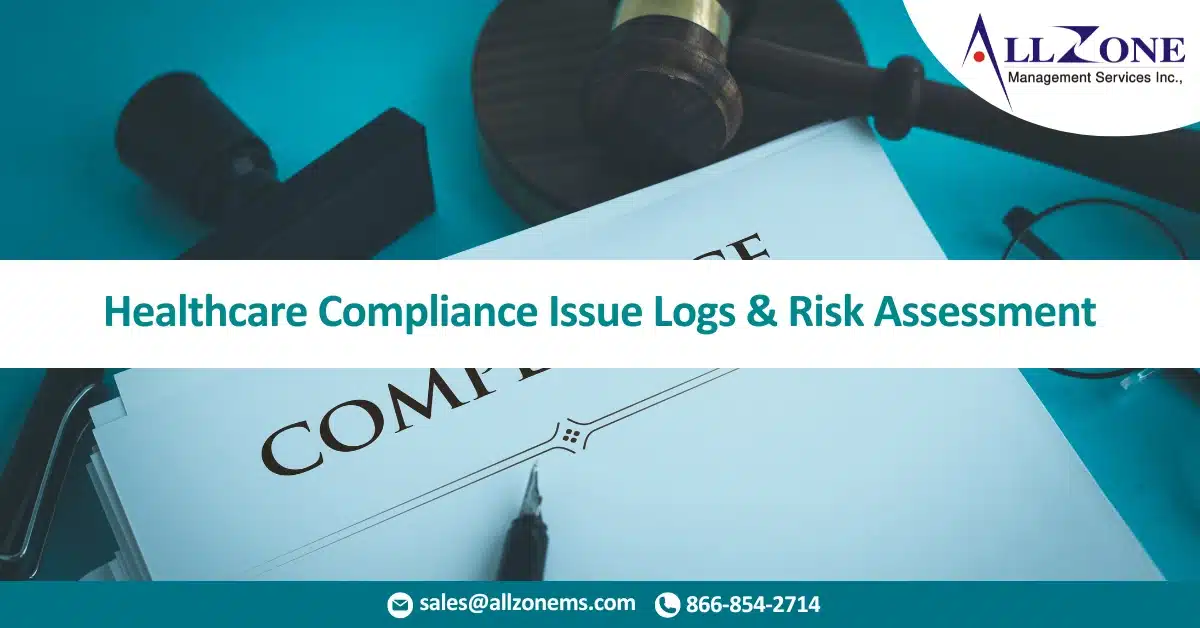Troubleshooting and insurance: These are the dual purposes of maintaining a detailed Healthcare Compliance Issue Logs, according to a senior compliance executive. Speaking at AAPC’s HEALTHCON Regional, the senior compliance executive highlighted the Office of Inspector General’s (OIG) new voluntary compliance guidance, emphasizing its importance even for organizations already familiar with the seven elements of an effective compliance program.
While voluntary, the senior compliance executive stressed that this guidance serves as the benchmark the government will use in enforcement actions. Noncompliance can lead to serious consequences, including corporate integrity agreements.
Senior compliance executive elaborated on several key aspects of the OIG guidance:
- Compliance Issue Logs: These logs are essential for demonstrating a functioning compliance system. They provide evidence that reported issues, whether through hotlines, anonymous drop boxes, or other reporting mechanisms, were investigated and addressed. The log should document the complaint, the investigation process, the validity of the complaint, and any resulting actions. As senior compliance executive stated, these logs can be crucial in defending against larger enforcement actions by demonstrating that issues stemmed from isolated incidents rather than systemic problems. Maintaining these records allows organizations to “tell that story years after the fact.”
- Motivation: A robust compliance program incorporates both consequences for noncompliance and incentives for compliance. While consequences like termination for inappropriate access to medical records are readily apparent, incentives, such as tying manager bonuses to compliance training completion rates, are equally important. Combining incentives with corresponding consequences, like repercussions for missed training deadlines, can further strengthen the program. Integrating compliance into employee and departmental performance reviews is also recommended.
- Risk Assessment: The OIG’s updated guidance underscores the importance of formal compliance risk assessments. Senior compliance executive strongly recommends conducting annual risk assessments, documented by formal policies and assigned responsibilities. This is crucial because organizational changes, such as expanding or reducing services, can significantly alter risk profiles. Regular risk assessment “will kind of up the level of your compliance program,” senior compliance executive advised.
- Medical Necessity: The OIG is now emphasizing medical necessity beyond traditional coding and billing audits. This means evaluating not just whether a service was provided, but also whether it was necessary. Senior compliance executive clarified that this doesn’t necessarily require coder auditors to make clinical necessity determinations, but the organization should involve someone with clinical expertise in the process. Medical necessity encompasses a wide range of situations, from unnecessary surgeries to redundant tests. Senior compliance executive cautioned that many organizations face audits and penalties due to medical necessity noncompliance, making robust evaluation systems essential.
The Crucial Role of Compliance Issue Logs in Revenue Cycle Management
Healthcare compliance issue logs significantly impact a Revenue Cycle Management (RCM) company by influencing financial performance, operational efficiency, and legal risks. These logs document regulatory breaches, billing errors, HIPAA violations, and fraud-related concerns, ensuring transparency and accountability in healthcare transactions.
Non-compliance with regulations like the Health Insurance Portability and Accountability Act (HIPAA), the Affordable Care Act (ACA), and Centers for Medicare & Medicaid Services (CMS) guidelines can lead to claim denials, financial penalties, and reputational damage. If compliance issues go unchecked, they may trigger audits, investigations, or even legal action, disrupting cash flow and increasing administrative burdens.
An RCM company must regularly monitor compliance issue logs to identify patterns, address systemic weaknesses, and implement corrective actions. Proactive compliance strategies, such as staff training, automated coding audits, and real-time monitoring, help mitigate risks and maintain regulatory adherence.
Moreover, compliance logs improve billing accuracy, reduce denials, and enhance payer-provider relationships. By ensuring adherence to healthcare regulations, an RCM company can optimize revenue collection, minimize legal risks, and build trust with clients. In a highly regulated industry, maintaining an effective compliance management system is critical for sustaining financial stability and operational excellence.

